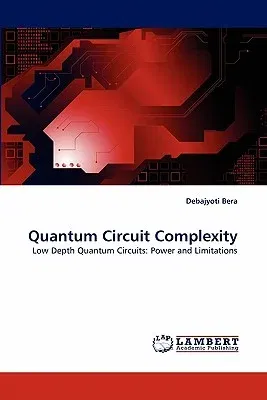Debajyoti Bera
(Author)Quantum Circuit ComplexityPaperback, 29 July 2010

Qty
1
Turbo
Ships in 2 - 3 days
In Stock
Free Delivery
Cash on Delivery
15 Days
Free Returns
Secure Checkout
Print Length
120 pages
Language
English
Publisher
LAP Lambert Academic Publishing
Date Published
29 Jul 2010
ISBN-10
3838383486
ISBN-13
9783838383484
Description
Product Details
Author:
Book Format:
Paperback
Country of Origin:
US
Date Published:
29 July 2010
Dimensions:
22.86 x
15.24 x
0.71 cm
ISBN-10:
3838383486
ISBN-13:
9783838383484
Language:
English
Location:
Saarbrucken
Pages:
120
Publisher:
Weight:
185.97 gm

